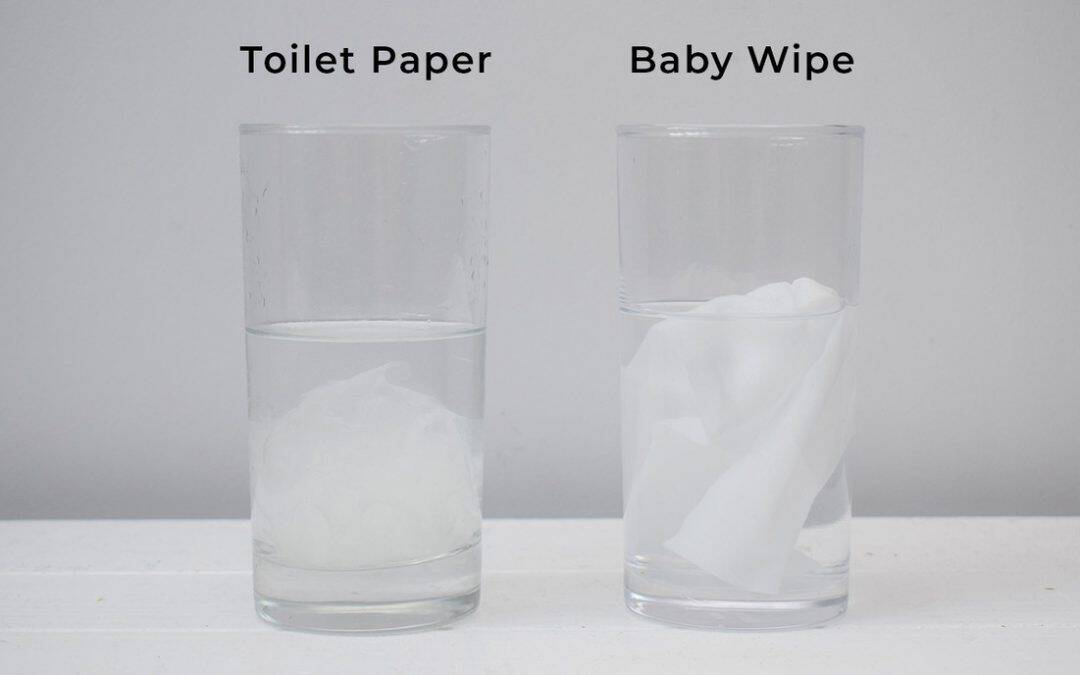For generations parents have used baby wipes to clean their child while changing their nappies. Recently, there has been a new trend that has seen baby wipes being marketed to adults for use while using the toilet. Traditionally, people use tissue to wipe and then proceed to flush it down the toilet once done, this process works just fine. However, the new trend of using “flushable” wipes raises concerns due to the aftermath of the flushing process.
When a toilet is flushed, the raw sewage is funnelled to a nearby waste water treatment plant. Debris in the water is then physically removed by machines. Baby wipes do not breakdown due to the fact that they are synthetic and non-biodegradable, as apposed to tissue paper, which is made of organic material.
This creates significant problems for the machinery as baby wipes are prone to getting stuck in gears and pump impellers which will need to be repaired at high costs.
“Water UK analysed blockage material taken from 54 sewer blockages across the UK. They included some in London, where samples were taken with help from Lanes Group wastewater engineers. It found 93 per cent of all identifiable blockage material was non-flushable wipes. Of that, 75 per cent, by weight, was baby wipes, while 20 per cent was cosmetic wipes, surface cleaning wipes, and feminine hygiene products. Just 1.9 per cent of material had been designed to be flushed.” – Water UK
With over 300,000 blockages a year, the cost of repairs to these systems is approximately £100 million each year and a large part of this cost is due to a phenomena known as “Fatbergs”; these are revolting sewer mountains made of baby wipes, grease and other gunk. Baby wipes add to the problem as they work as a binding agent making sewage clump together clogging drains and pipes.
Fatbergs have become significantly more common in recent years in areas such as London, Cardiff, Staffordshire and Devon – Image credit: Forbes.com
This is an unsightly reminder that those innocuous moistened sheets don’t disappear or dissolve when we flush them down the toilet. Even if they are labelled as flushable. A simple solution to this problem, would be to avoid flushing wipes toilet and bin them for correct disposal!
AHS Wipe disposal units, can be situated in baby-change areas, sports facility changing areas, washrooms, and other locations that wipes are commonly used, providing an instant disposal method that is collected for you and disposed of at no detriment to our waterways. Available in various sizes.




